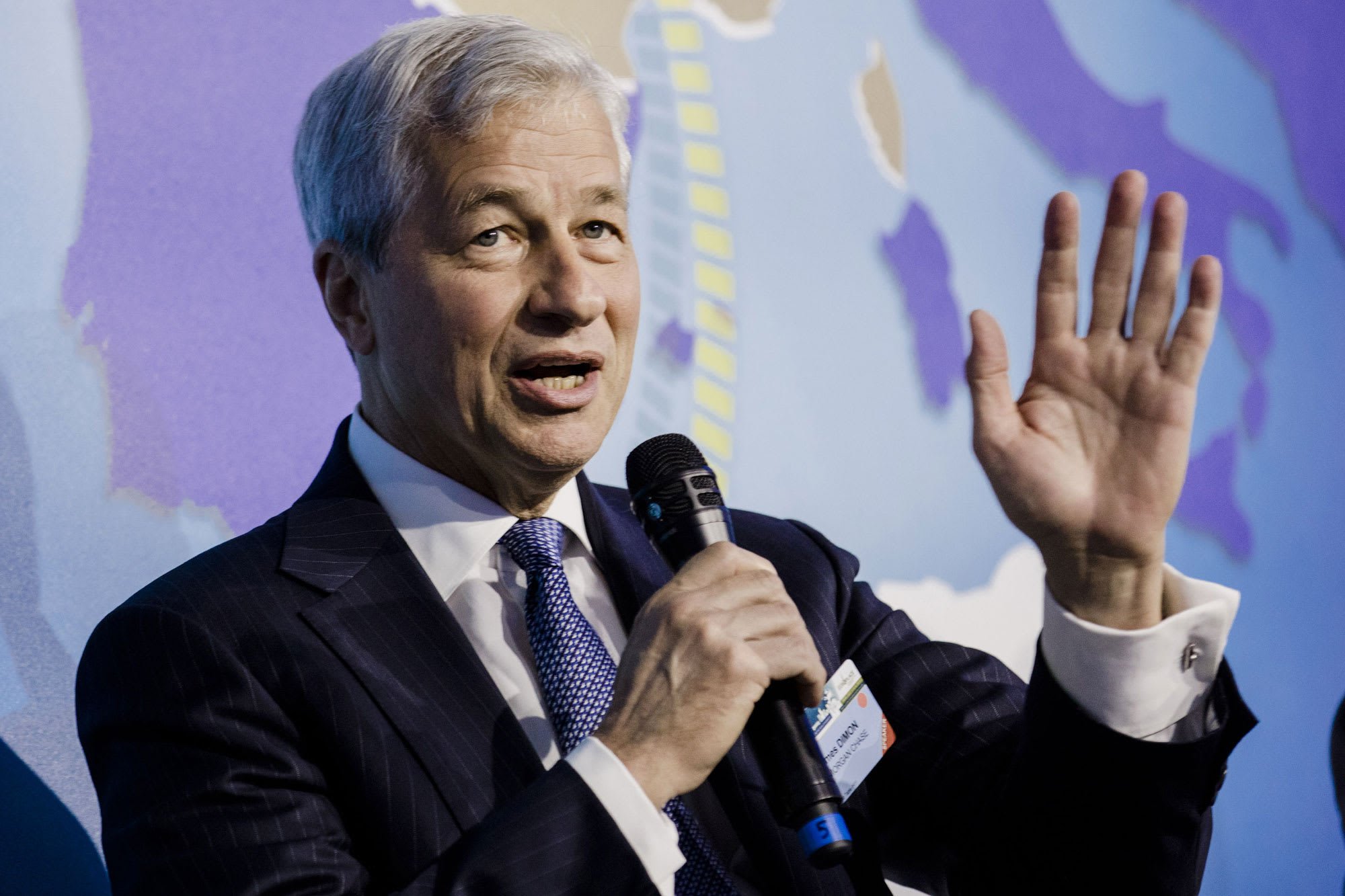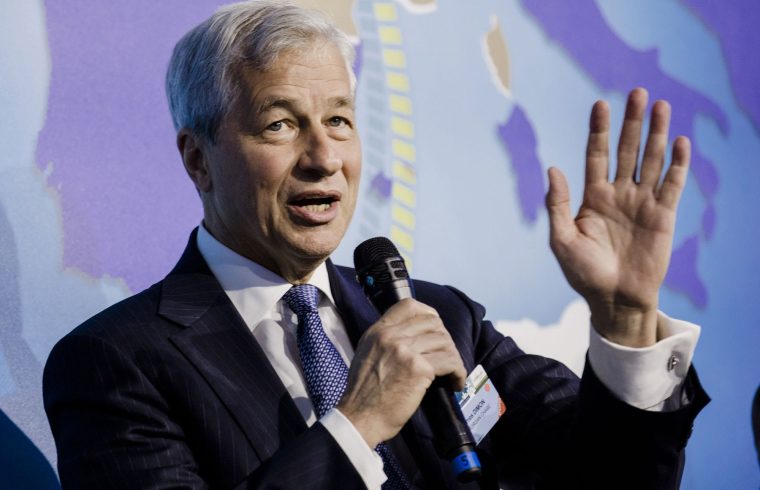
Jamie Dimon, chief executive officer of JPMorgan Chase & Co.
Marlene Awaad | Bloomberg | Getty Images
JPMorgan Chase managed to throw off the most quarterly revenue in its history at the same time that the U.S. economy is in the throes of a sharp recession.
The bank posted $ 33.8 billion in second-quarter revenue, helping it earn a better-than-expected $ 4.69 billion in profit for the period, because of shrewd moves made under CEO Jamie Dimon to build up its investment bank in the years after the financial crisis.
JPMorgan is known to most as one of the biggest U.S. retail banks, with a coast-to-coast network of branches that has fueled much of the lender’s dominance over the past decade. Thanks to the coronavirus pandemic, that division has left the company exposed to billions of dollars in potential loan defaults across credit card, mortgage and auto lines.
But JPMorgan also has the world’s biggest Wall Street bank by revenue, a business that is helping it capture opportunities created by the response to the pandemic. Surging volatility and unprecedented steps taken by the Federal Reserve to support credit markets have created the best environment for trading and advising on debt and equity issuance in years.
Now, Dimon’s moves to grab market share in trading and investment banking from weakened European rivals like Deutsche Bank are looking especially smart. JPMorgan’s corporate and investment bank posted a record $ 5.5 billion profit for the second quarter, which is more money than most entire banks typically generated before the coronavirus pandemic.
The Wall Street division helped offset losses in two of JPMorgan’s four main businesses, its consumer and commercial bank, as the firm set aside $ 8.9 billion for expected loan defaults across its operations.
JPMorgan traders exceeded expectations that were already heightened for the quarter after management said in late May that markets revenue was headed for a 50% increase. That figure jumped by 79% to a record $ 9.7 billion, driven especially by strong fixed income trading.
Bond traders posted revenue of $ 7.3 billion, a 120% increase from a year earlier, crushing the $ 5.84 billion estimate by almost $ 1.5 billion. Equities traders posted revenue of $ 2.4 billion, beating the $ 2.07 billion estimate.
Investment banking revenue climbed 91% to $ 3.4 billion on record advisory fees as big corporate clients tapped debt and equity markets at a furious pace to build cash positions amid the uncertainty of the pandemic.
“We’ve raised record amounts of capital for our clients, advised them on strategic opportunities and helped them navigate the markets, all while facing personal challenges caused by the pandemic,” Daniel Pinto, co-president of JPMorgan and head of the corporate and investment bank, said Tuesday in a staff memo. “It’s difficult to predict what the rest of 2020 will look like, but we do expect to return to more normal activity levels.”
Meanwhile, JPMorgan’s retail banking division posted a $ 176 million loss, compared with a $ 4.2 billion profit a year earlier, driven by the addition of reserves in credit cards and other products. It was a similar story at the firm’s commercial bank, which posted a $ 691 million loss, compared with a $ 1 billion profit a year earlier.
The firm’s asset management division was less impacted by the pandemic, posting an 8% profit decrease to $ 658 million as it built loan loss reserves.
As for the path forward, it’s not entirely clear, JPMorgan executives conceded Tuesday. Federal stimulus programs have supported individuals and small businesses in the second quarter, masking the true impact of the pandemic, Chief Financial Officer Jennifer Piepszak said Tuesday on a conference call.
If a relatively benign scenario emerges, JPMorgan will have too much capital saved and could resume stock buybacks as early as the fourth quarter, Dimon told analysts. If a more severe recession happens, caused by a second wave of infections in the fall, the bank could be forced to cut its dividend, he said.
“We’re really hitting the moment of truth in the months ahead,” Piepszak said.







